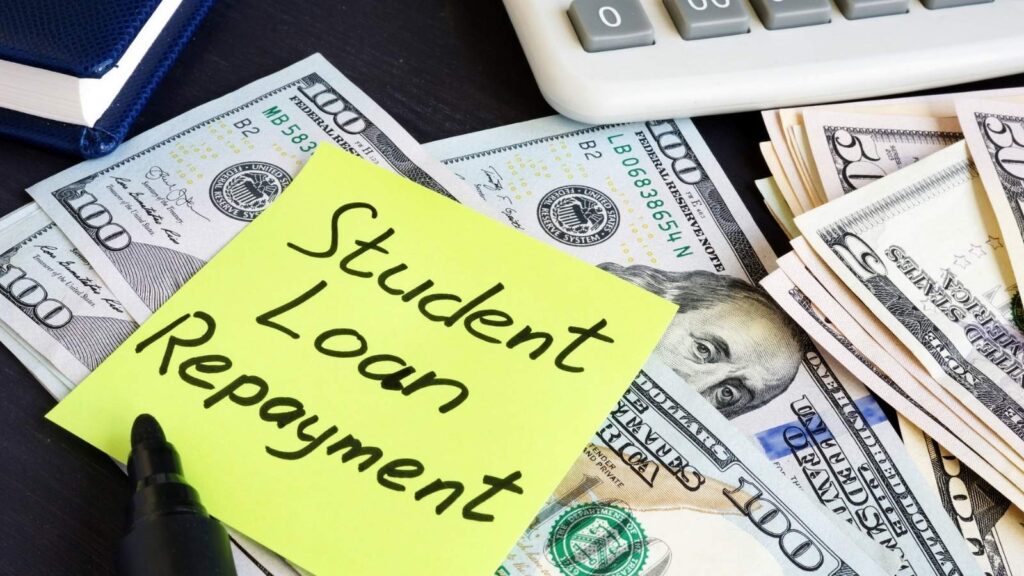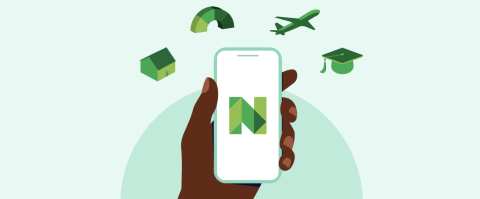
Find the latest
The suspension of federal student loan payments has ended after three and a half years.
Student loan balances began accruing interest again on Sept. 1, and bills resumed in October. You can check your account online or give your student loan servicer a call to find out the precise date of your monthly bill.
You have a safety net if you didn’t receive your October bill: the one-year student loan “on-ramp.” Between Oct. 1, 2023 and Sept. 30, 2024, borrowers who dont make payments wont default. However, interest will continue to accrue during the on-ramp, raising their total debt.
President Joe Biden stated in a June press conference, “If you can pay your monthly bills, you should during this period,” following the Supreme Court’s blocking of his plan to waive up to $20,000 in student debt per borrower. “However, this on-ramp momentarily eliminates the risk of default or credit damage, which can harm borrowers for years to come, if you are unable to make payments or miss them. “.
You still have time to make your student loan payments, even if you’re starting late. Heres what you need to know.
When are federal student loans due?
First monthly payment after the pandemic pause was due in October, unless you graduated recently and are in your loan grace period.
The terms of your loan determine the amount and date of your monthly payment. That data is available through your monthly statement, by getting in touch with your loan servicer, or by visiting your servicer’s website.

What did the payment pause do?
Under then-President Donald Trump, the interest-free student loan payment suspension, or forbearance, was implemented as an emergency pandemic measure in response to the COVID-19 pandemic in March 2020. In the end, it was extended nine times in a span of thirty-five months.
Borrowers of federal student loans were permitted to forgo payments during the suspension. Autopay loans were discontinued, and efforts to collect delinquent loans were also put on hold. Interest did not accrue.
Start planning for repayment now
Although repayment has already started, it’s still not too late to create a plan. You should take the following actions right away to get ready for repayment:
- Locate your student loan servicer. Since forbearance started, the organization in charge of your student loans may have changed. Find your servicer by logging into StudentAid. gov.
- Contact your servicer. Visit the website of your provider or contact them via phone. Update your contact information. Find out how much your bills could be each month, how much you might owe when payments resume, and what payment options are available to you. By setting up automatic payments, you may be eligible for a zero 25 percentage point interest rate discount .
- Consider an income-driven repayment plan. You can apply online or have your servicer assist you in signing up for an IDR plan. These programs reduce your monthly expenses to a predetermined percentage of your disposable income. It’s a good idea to apply as soon as possible so that your payments reflect the lower amount when repayment begins, even if your payment is as low as $0 per month.
Revised Pay As You Earn (REPAYE) plan was superseded by a new IDR plan called SAVE, which Biden announced on June 30. By enrolling in SAVE, qualified borrowers could save a substantial sum of money. You can apply for SAVE online and determine which plan would have the lowest payment using the federal loan payment simulator.
To restore your loans to good standing if they were in default prior to the start of forbearance, sign up for the short-term Fresh Start program.
Will my loans get cancelled?
Broad student loan cancellation is on hold. In June, the Supreme Court struck down President Joe Biden’s plan to cancel student loans, stating that the HEROES Act did not give his administration the authority to waive up to $20,000 in debt for each borrower.
Biden is seeking the cancellation of student loans through a different legal avenue, but experts say there is little chance of success and that it could take a year or more to implement. In the interim, payments are due, so please make them.
Additionally, under a one-time program known as the IDR account adjustment, if you have been repaying your federal student loans for at least 20 or 25 years, you may be eligible to have the remaining balances forgiven. This forgiveness is automatic for most longtime student loan borrowers.




















FAQ
How long until student loans are forgiven?
Income-Based Repayment (IBR)%E2%80%94 Depending on when you first took out the loans (before, on, or after July 2014), payments are typically made out of the borrower’s discretionary income in 2010 or 2015, but never more than the 2010-year Standard Repayment Plan amount. After 20 or 25 years, the remaining loan balance is forgiven.
Do student loans go away after 7 years?
If the loan is fully repaid, there will still be a default for seven years after the last payment date on your credit report, but there will be no balance shown. Your credit report will no longer show the default if you successfully rehabilitate your loan.
Can the student loan freeze your bank account?
If any taxes or student loans are not paid, the government may request that your account be frozen. Consult a lawyer or your bank for information on how to remove the freeze.
Should I pay off my student loans or wait for forgiveness?
It might be prudent to simply continue making your regular student loan payments and maybe wait to see if this new program can eventually result in some of your balances being forgiven. This is a great excuse to prioritize other investments or payments that are more important than paying off your student loans quickly.
Read More :
https://www.nerdwallet.com/article/loans/student-loans/federal-student-loan-forbearance-extended-yet-again
https://www.lendingtree.com/student/student-loan-relief-extended/
